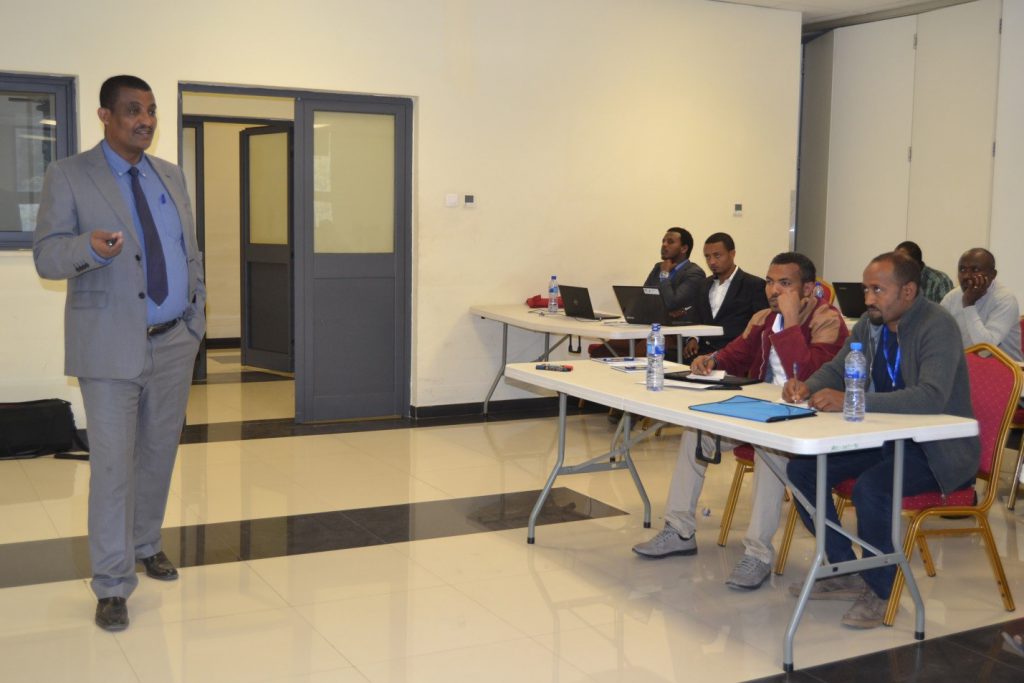Training on Laboratory Diagnosis of Leishmaniasis is Going On

The Ethiopian Public Health Institute’s (EPHI) Bacterial, Parasitic and Zoonosis Diseases Research Directorate (BPZDRD) is delivering a short training on laboratory diagnosis of Leishmaniasis for laboratory professionals which started on December 24 and will continue until December 28, 2018.
Tesfahun Bishaw from the Federal Ministry of Health while opening the training explained that the training is expected to show the modalities of Leishmaniasis diagnosis and the challenges in the diagnosis process.
Before the training started a pre-exam test was given to the trainees in order to assess their current knowledge of status on Leishmaniasis diagnosis.
After the exam, Dr. Geremew Tasew from BPZDRD presented introduction to Leishmaniasis which aimed to create discussion points and experience sharing. The presentation covered the discovery, taxonomy, clinical classification, definition, risk factors, etc. of Leishmaniasis.
“Leishmaniasis is a collective name for diseases caused by protozoan and it is endemic in 98 countries of the World. In Ethiopia 90% of the disease occurs in Amhara and Tigray regions. The diagnosis of Leishmaniasis relies on clinical diagnosis and laboratory investigation. This meeting, since the trainees are professionals, is more of experience sharing not a teaching –learning one,” said Dr. Geremew.
More than 20 laboratory professionals from Federal and Regional hospitals are participating on the training.
The finance for the training is covered by KalaCORE, an organization which works to strengthen the country’s capacity for control of Leishmaniasis.
